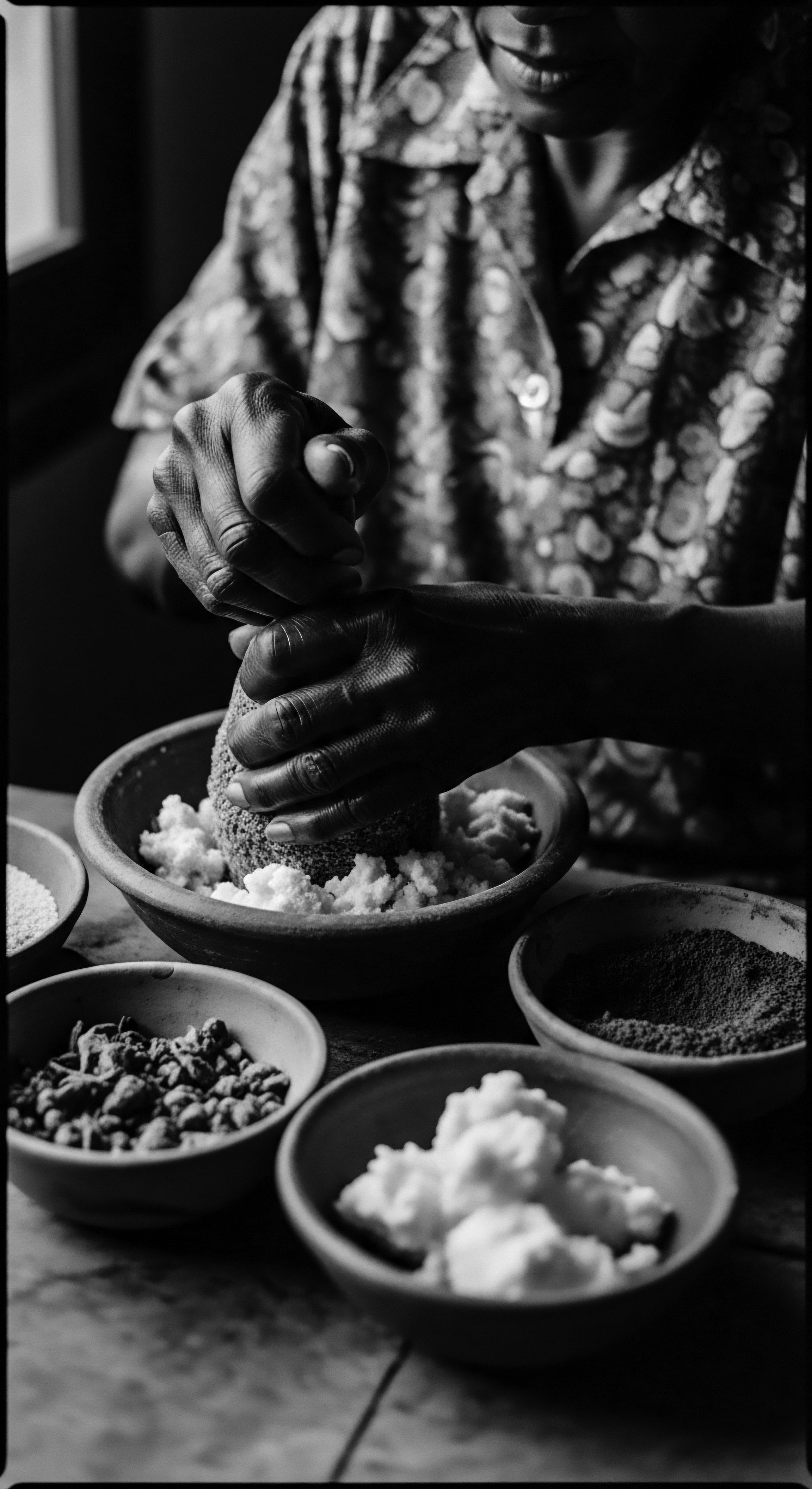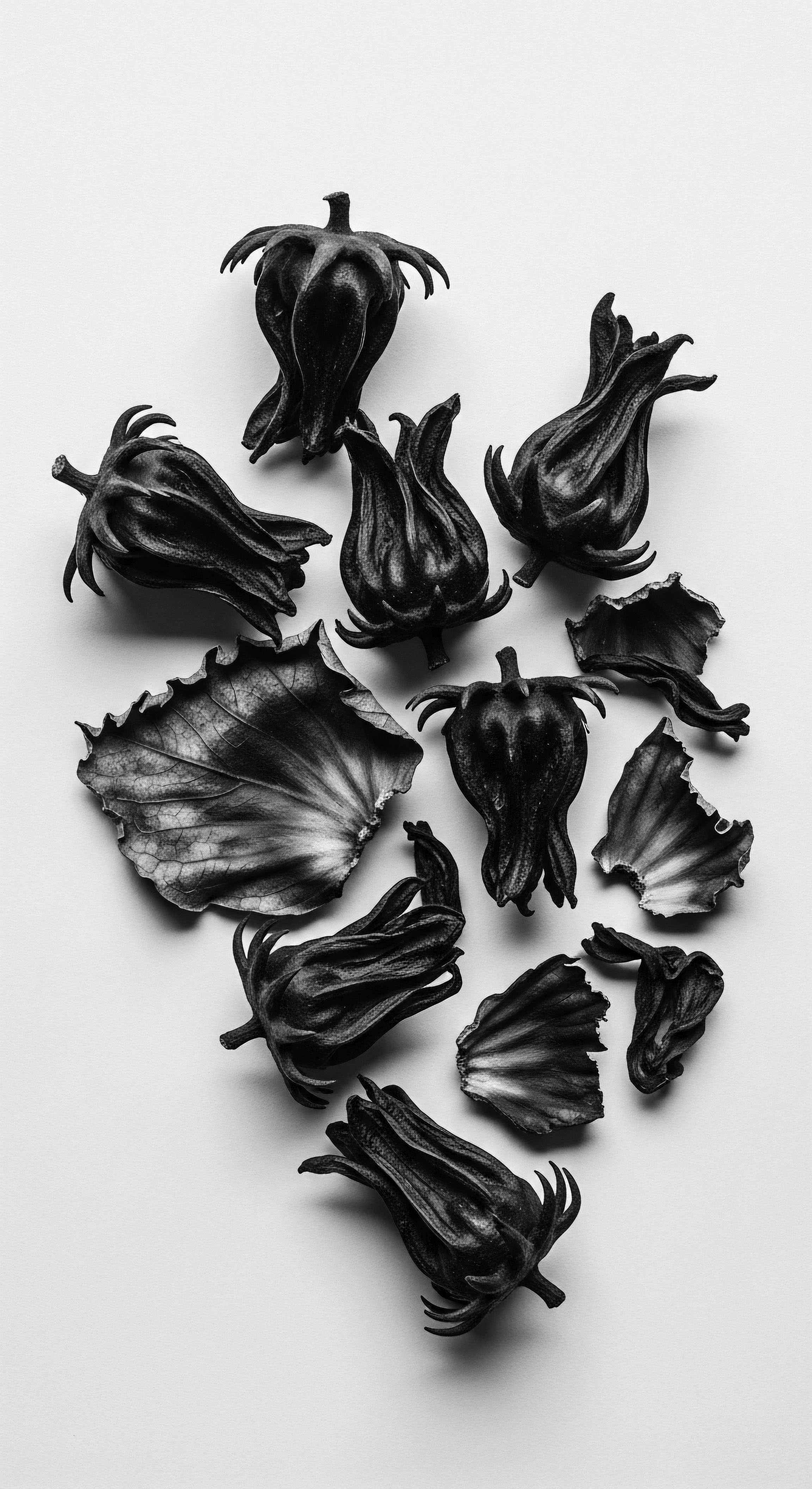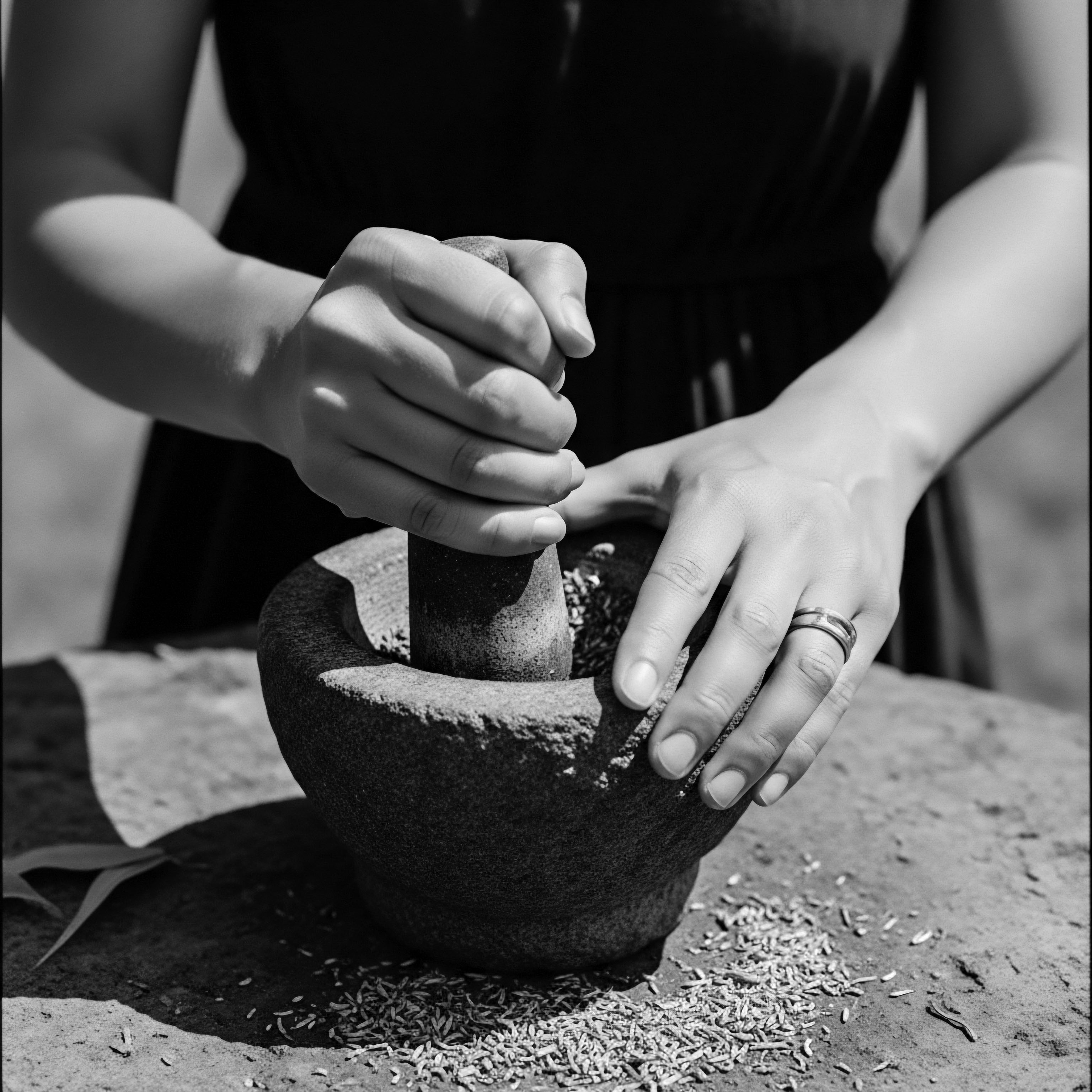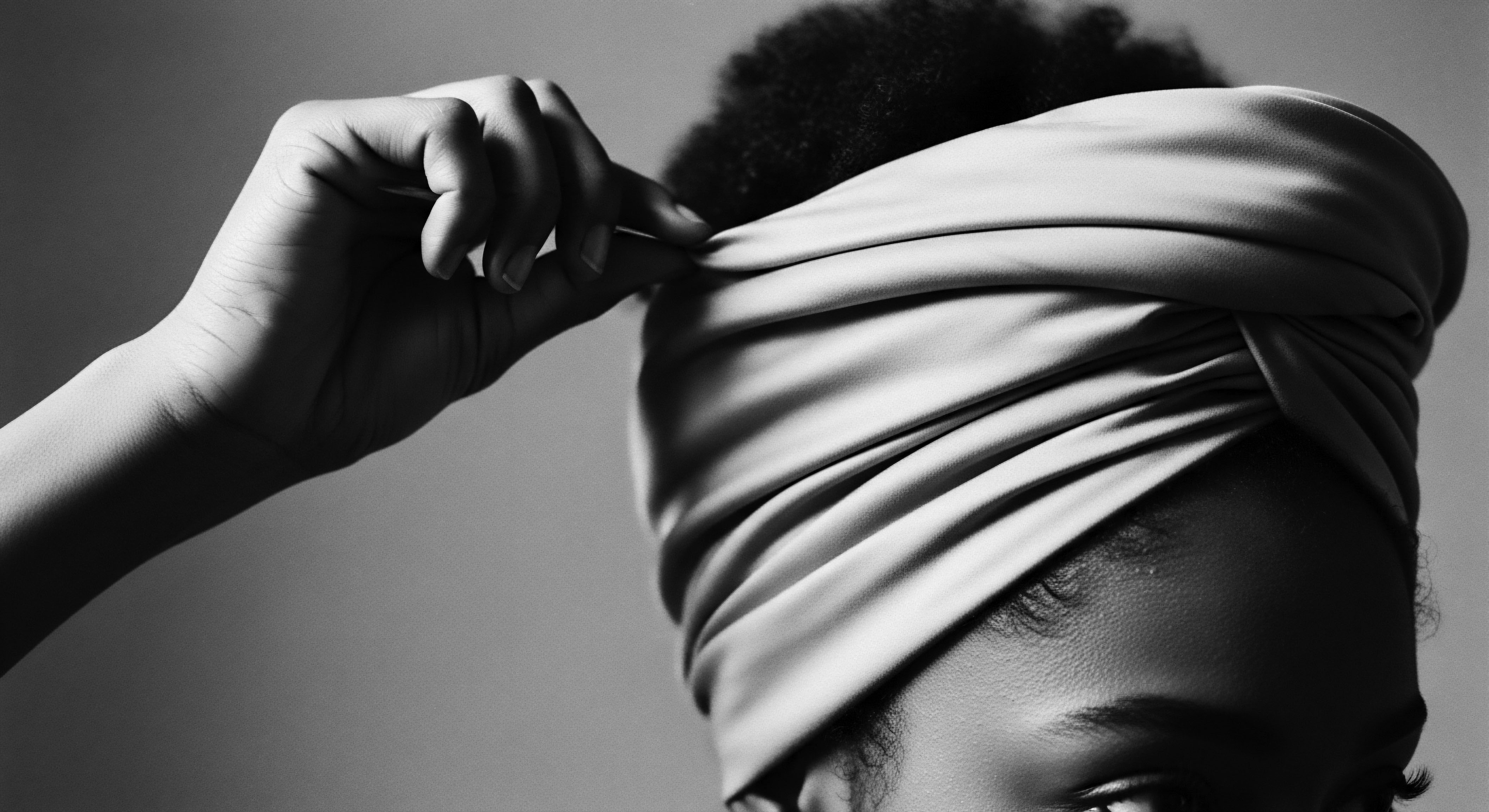
How Do Traditional African Ingredients Benefit Textured Hair Wellness?
Traditional African ingredients nourish textured hair wellness by deeply moisturizing and fortifying strands, continuing a rich ancestral heritage.

Which Traditional Ingredients Shield Textured Hair Effectively?
Ancestral butters and oils form a protective layer, reducing moisture loss and shielding textured hair from environmental elements.

Did Ancestral Cleansing Methods Influence Contemporary Textured Hair Care?
Ancestral cleansing methods directly shaped contemporary textured hair care by emphasizing moisture retention, natural ingredients, and scalp health, rooted in deep heritage.

What Historical African Hair Care Practices Involve Plant Oils?
Historical African hair care used plant oils like shea, argan, and palm for nourishment and protection, deeply rooted in textured hair heritage.

Can Ancient Plant Wisdom Solve Modern Textured Hair Problems?
Ancient plant wisdom from textured hair heritage offers effective solutions for modern hair problems.

Which Ancient Botanicals Strengthen Textured Strands?
Ancient botanicals like Chebe, Shea Butter, and Amla strengthen textured strands through their rich heritage of natural nourishment and protection.

Hair Care Benefits
Meaning ❉ Hair Care Benefits encompass the structural, physiological, and aesthetic enhancements of hair, deeply rooted in historical and cultural care practices.

Fonio Hair Wellness
Meaning ❉ Fonio Hair Wellness deeply connects textured hair vitality to the heritage of West African fonio grain and ancestral nourishing practices.

Fonio Hair
Meaning ❉ Fonio Hair describes a holistic hair care philosophy drawing from the resilient Fonio grain and its deep connection to textured hair heritage.

What Traditional African Oils Sustained Textured Hair?
Traditional African oils like shea, baobab, marula, and castor sustained textured hair by providing moisture, protection, and cultural significance.

Environmental Repair
Meaning ❉ Environmental Repair for textured hair is the holistic restoration of vitality and balance through ancestral wisdom and modern understanding.


